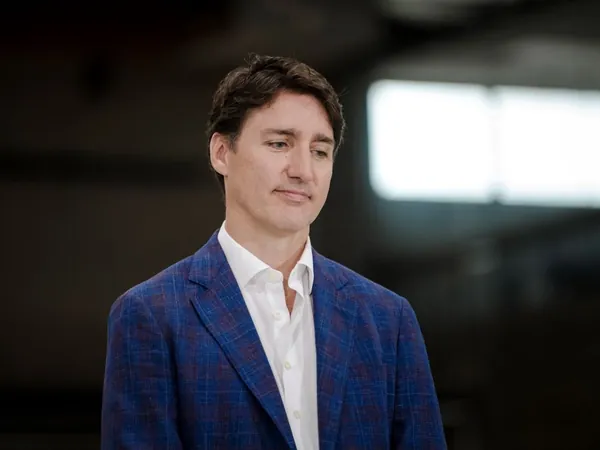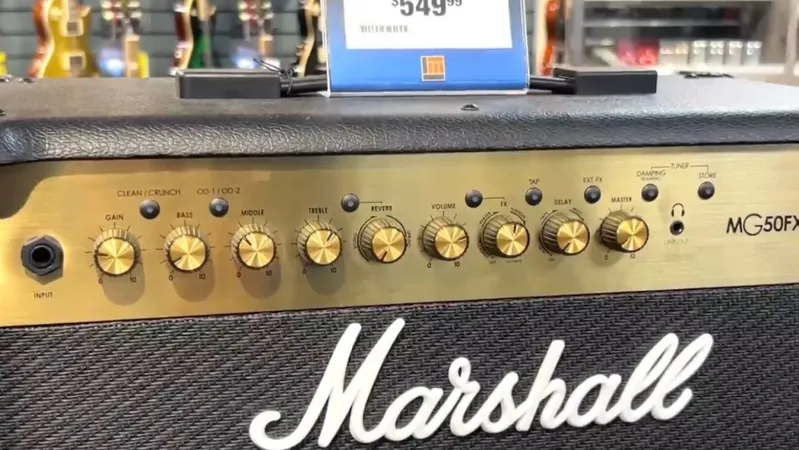
Trudeau's Regret: The Fiasco of Electoral Reform in Canada
2024-10-08
Author: Olivia
In a recent podcast appearance with Liberal MP Nate Erskine-Smith, Prime Minister Justin Trudeau candidly shared what he believes is the gravest mistake of his political career: the handling of electoral reform. His swift response suggesting that electoral reform was the issue he would have approached differently sparked mixed reactions, leading many to question the sincerity of his regret.
Trudeau admitted, "I made two big mistakes" regarding electoral reform. The first, he claims, was allowing the discussion around proportional representation (PR) to surface as an option among alternatives to the first-past-the-post (FPTP) system, which he had vowed to replace. He deemed PR "unthinkable" for Canada, framing the debate in terms of practicality and democratic integrity.
Supporters of PR argue that it better represents voters' preferences, while opponents like Trudeau raise concerns over creating different classes of MPs and potentially diluting local representation. Trudeau's preferred model involves keeping the existing FPTP system but utilizing ranked ballots, a method that aims to keep voters engaged while maintaining the status quo. However, his reluctance towards robust electoral reform reflects a deeper apprehension about altering the political landscape.
Interestingly, while Trudeau campaigned on a platform which included a promise to make every vote count, his subsequent move towards ranked ballots has faced criticism from advocates of PR, who argue that such a system disproportionately benefits centrist parties — notably the Liberals themselves. Even groups like Fair Vote Canada have expressed their discontent, stating that ranked ballots do little to assure proportional representation.
Further complicating matters, Trudeau later indicated that not using his majority to implement a ranked ballot system was his second major mistake. He acknowledged the irreversible nature of electoral system changes, implying he should have pushed through his preferred method despite lacking bipartisan support. However, this admission raises questions about the timing and integrity of his earlier commitments. Was he ever truly committed to substantial reform, or was it merely a strategy to win progressive voters?
The complexities of electoral reform illustrate the tangled web of political promises and governance, revealing that many in the electorate are left feeling disillusioned. Trudeau's failure to deliver on this front has fostered mistrust, especially among his progressive base — a demographic he can hardly afford to alienate.
While the podcast discussion was, according to some, an enlightening reflection on political accountability, many observers are left wondering if Trudeau's acknowledgment amounts to anything more than a public relations exercise aimed at mending fences with disenchanted supporters. The irony of the situation is stark: a man who campaigned on reform may have inadvertently solidified his reputation as a prime minister who faltered at a pivotal moment.
As Canada approaches future elections and ongoing discussions surrounding electoral systems continue, the question remains: will Trudeau learn from his past, or will electoral reform remain a morose memory in the annals of his leadership?









 Brasil (PT)
Brasil (PT)
 Canada (EN)
Canada (EN)
 Chile (ES)
Chile (ES)
 España (ES)
España (ES)
 France (FR)
France (FR)
 Hong Kong (EN)
Hong Kong (EN)
 Italia (IT)
Italia (IT)
 日本 (JA)
日本 (JA)
 Magyarország (HU)
Magyarország (HU)
 Norge (NO)
Norge (NO)
 Polska (PL)
Polska (PL)
 Schweiz (DE)
Schweiz (DE)
 Singapore (EN)
Singapore (EN)
 Sverige (SV)
Sverige (SV)
 Suomi (FI)
Suomi (FI)
 Türkiye (TR)
Türkiye (TR)